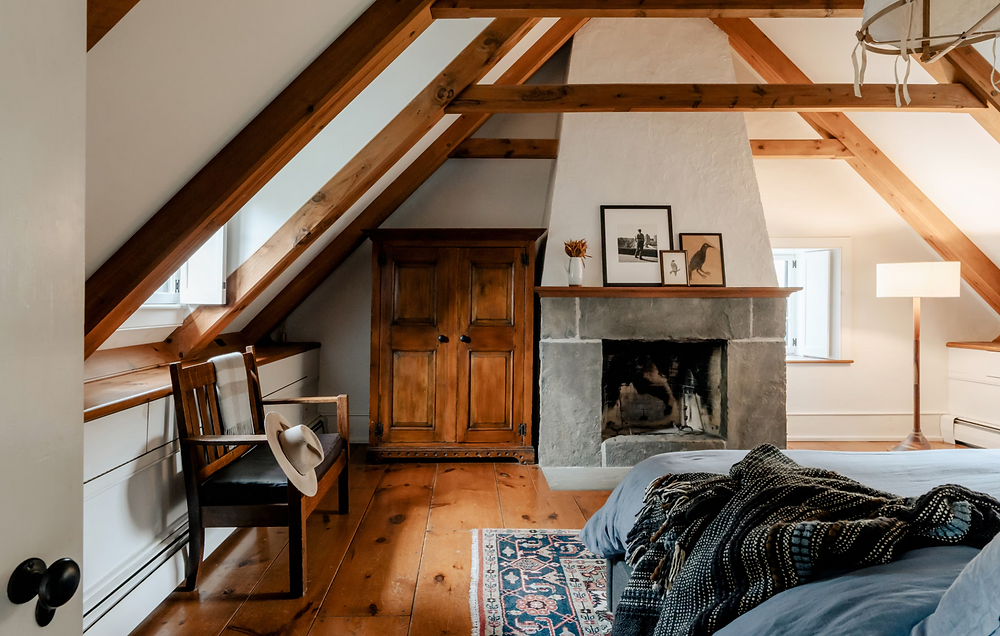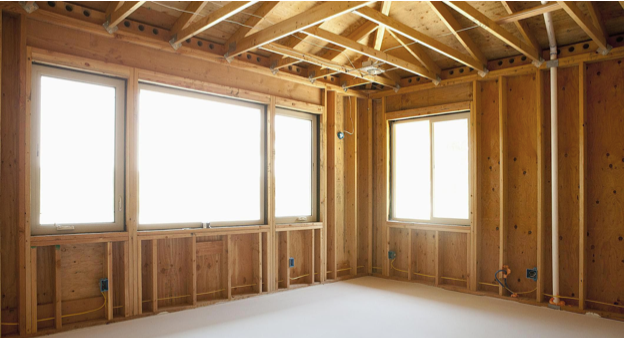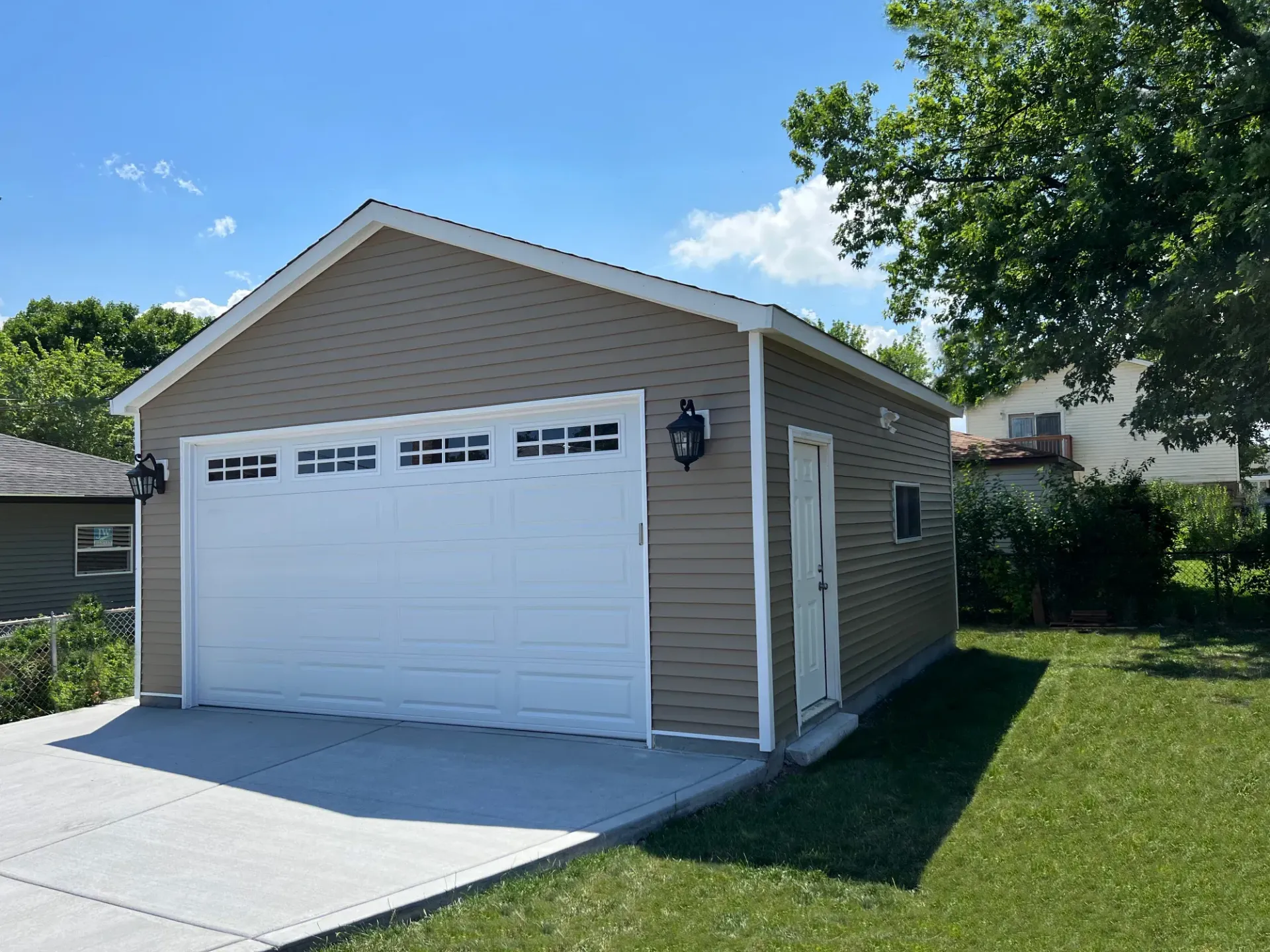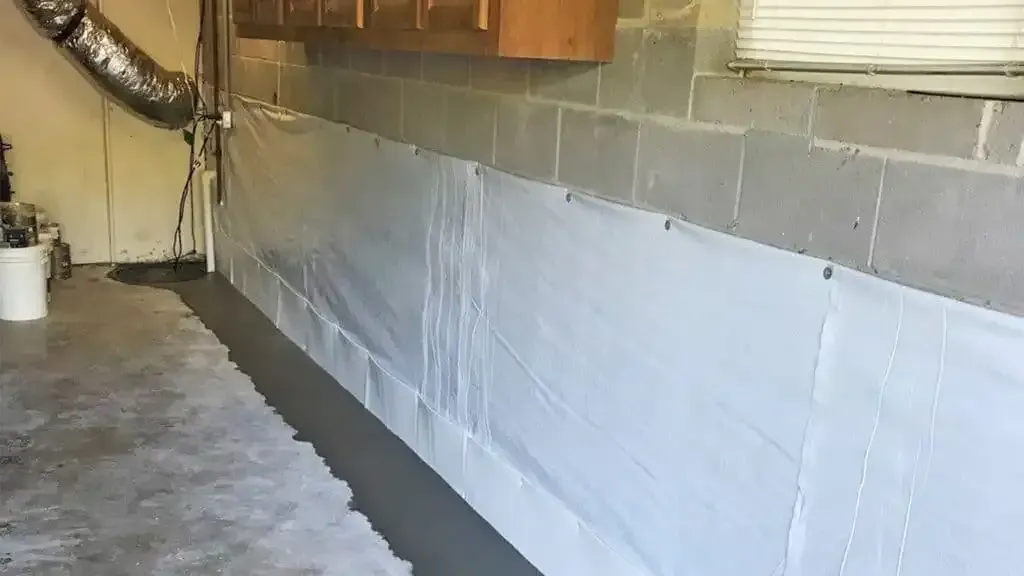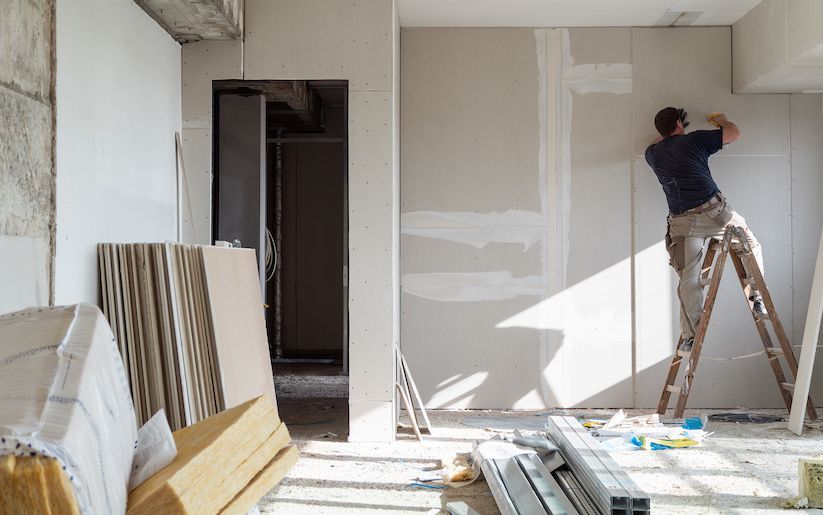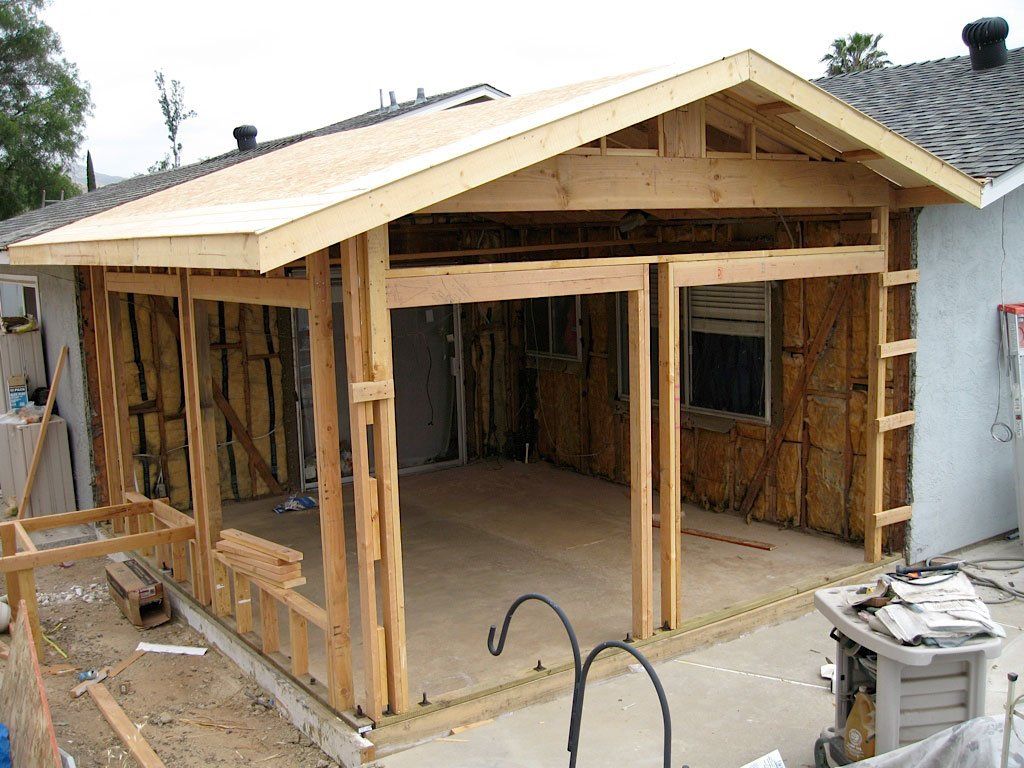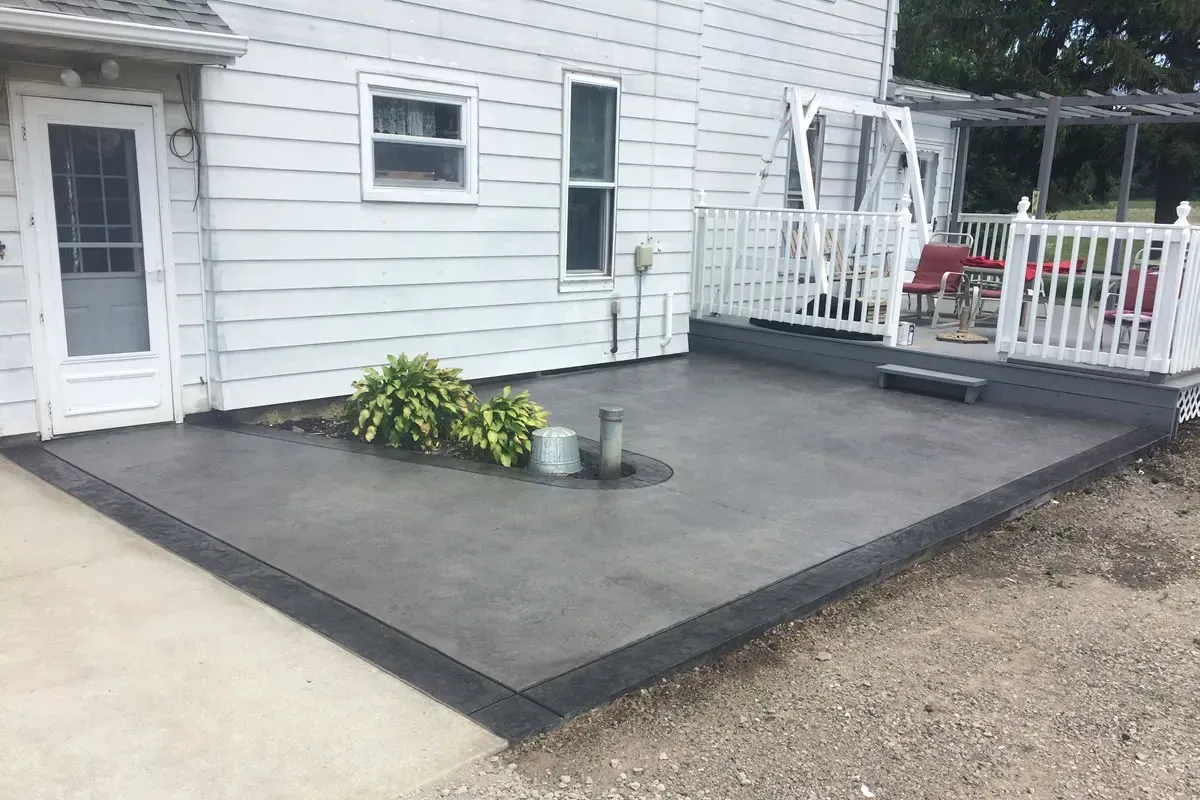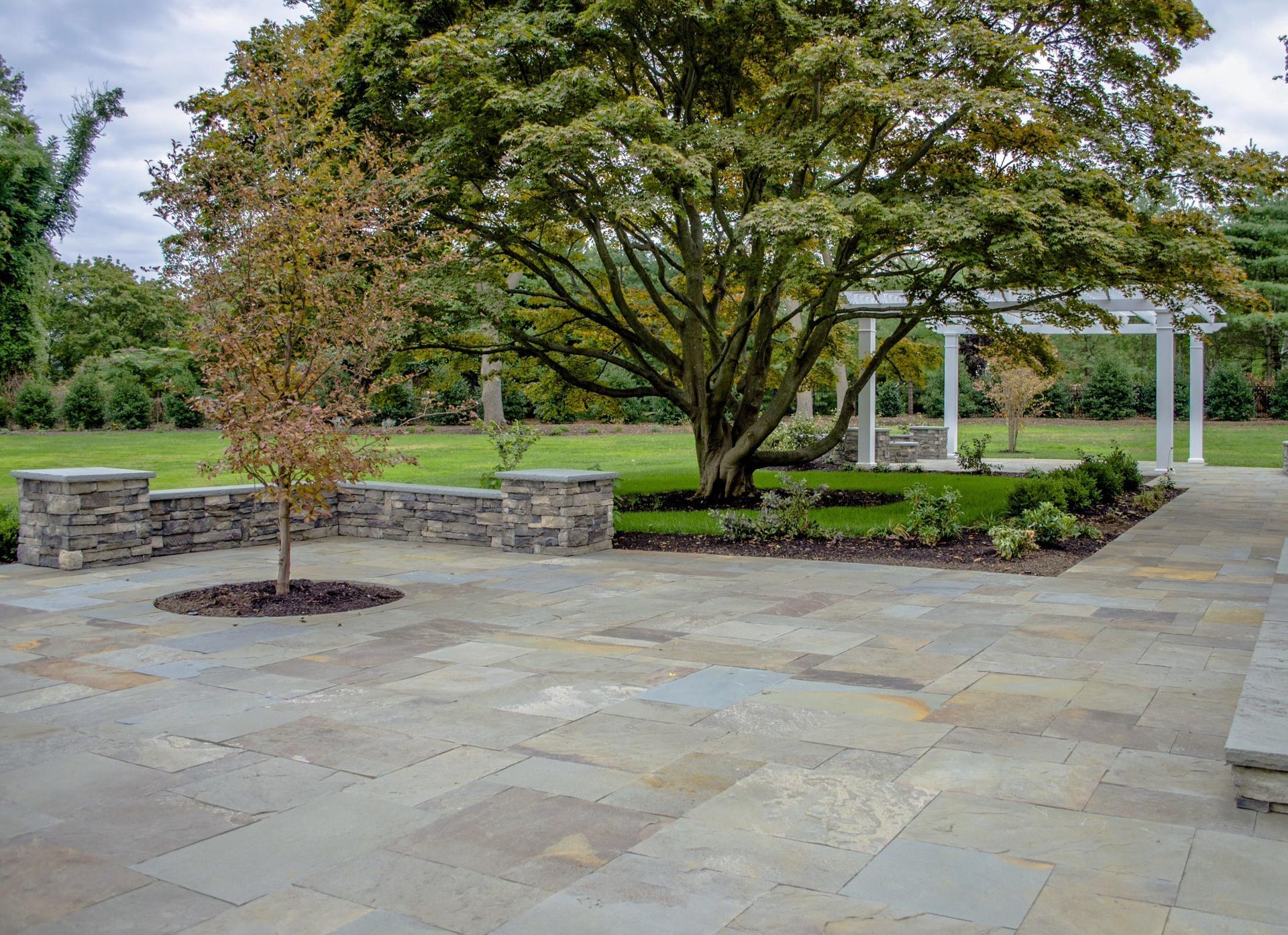Do I Need a French Drain Under My Patio in Rhode Island?
Yes, you likely need a French drain under your patio in Rhode Island if you experience:
- Standing water around your patio area
- Water pooling against your home's foundation
- Soggy soil conditions during spring thaw
- Clay-heavy soil that doesn't drain well
- Your patio slopes toward your house
Rhode Island's unique climate and soil conditions make proper patio drainage essential for protecting your home and maintaining a usable outdoor space year-round.
Understanding Rhode Island's Drainage Challenges
Why Rhode Island Patios Face Unique Water Issues
Rhode Island homeowners face specific drainage challenges that make French drains particularly valuable:
Clay-Heavy Soils: Much of Rhode Island sits on dense clay soils that retain water rather than allowing proper drainage. This is especially common in Providence, Warwick, and Cranston areas.
Seasonal Weather Patterns: Rhode Island experiences significant seasonal precipitation, from heavy spring rains to winter snow melt. The state averages 47 inches of precipitation annually, with intense spring runoff periods.
Coastal Influence: The Ocean State's proximity to water creates humidity and moisture retention issues that compound drainage problems around patios and foundations.
Historic Home Foundations: Many Rhode Island homes were built before modern drainage standards, making proper water management around patios even more critical.
What is a French Drain and How Does it Work?
A French drain is a gravel-filled trench containing a perforated pipe that redirects water away from problem areas. Under a patio, it creates a pathway for water to flow away from your foundation and outdoor living space.
Key Components of a Patio French Drain System:
- Perforated drainage pipe (typically 4-6 inches in diameter)
- Gravel bed surrounding the pipe
- Landscape fabric to prevent soil infiltration
- Proper slope directing water to a safe discharge point
Signs You Need a French Drain Under Your Rhode Island Patio
Immediate Red Flags:
- Puddles lasting 24+ hours after rain on or around your patio
- Foundation moisture or basement dampness near the patio area
- Efflorescence (white mineral deposits) on foundation walls
- Sinking or settling patio stones or concrete
- Moss or algae growth in consistently wet areas
Seasonal Indicators:
- Spring flooding around your patio during snowmelt
- Ice formation under patio areas in winter
- Soggy grass that won't dry out adjacent to your patio
- Difficulty growing plants due to oversaturated soil
Rhode Island Building Codes and Drainage Requirements
Rhode Island follows specific building codes regarding drainage around structures:
- Minimum 6-inch slope away from foundations over first 10 feet
- Proper grading requirements for new construction and major renovations
- Municipal permits may be required for drainage modifications in cities like Providence, Newport, and Pawtucket
Always check with your local building department before beginning drainage work, as requirements can vary between municipalities.
French Drain Installation Process for RI Patios
Step 1: Site Assessment
Professional evaluation of your specific soil conditions, existing drainage, and local water table levels common in Rhode Island's coastal environment.
Step 2: Excavation Planning
Careful planning around Rhode Island's frost line (48 inches deep) and existing utilities common in densely populated areas.
Step 3: Installation
- Excavate trench with proper slope (minimum 1% grade)
- Install landscape fabric
- Place and connect perforated drainage pipe
- Backfill with appropriate gravel
- Restore patio surface
Step 4: Connection to Discharge Point
Connect to storm drains, dry wells, or other appropriate discharge locations compliant with local Rhode Island regulations.
Cost Considerations for Rhode Island Homeowners
Factors Affecting Price:
- Soil conditions: Rocky or clay soils common in RI increase excavation costs
- Patio size and complexity: Existing hardscaping removal and restoration
- Permit requirements: Municipal fees vary across Rhode Island cities
- Seasonal timing: Spring and fall installation may cost more due to high demand
Investment Protection:
A properly installed French drain system protects your patio investment and prevents costly foundation repairs common in Rhode Island's challenging climate.
DIY vs. Professional Installation in Rhode Island
Why Professional Installation is Recommended:
Local Expertise: Understanding Rhode Island's unique soil conditions, from the sandy soils near the coast to clay deposits inland.
Permit Navigation: Familiarity with varying municipal requirements across Providence County, Kent County, Washington County, Bristol County, and Newport County.
Proper Equipment: Professional tools necessary for dealing with Rhode Island's rocky soil conditions and existing utilities.
Warranty Protection: Professional installation typically includes warranties protecting your investment.
Maintenance Tips for Rhode Island French Drains
Annual Maintenance:
- Spring inspection after snowmelt and heavy rains
- Fall cleaning to remove leaves and debris
- Outlet inspection to ensure clear discharge paths
Long-term Care:
- Monitor for settling or changes in drainage patterns
- Keep discharge areas clear of vegetation
- Schedule professional inspections every 3-5 years
Alternative Drainage Solutions for RI Patios
If a French drain isn't suitable for your situation, consider these alternatives:
Surface Drainage:
- Channel drains along patio edges
- Permeable pavers allowing water infiltration
- Grading modifications to improve surface runoff
Hybrid Systems:
- Combination approach using multiple drainage methods
- Rain gardens for natural water management
- Sump pump systems for extreme water table issues
Local Rhode Island Considerations
Municipal Variations:
- Providence: Strict stormwater management requirements
- Newport: Historic district considerations for drainage work
- Warwick: Coastal flooding concerns requiring special drainage planning
- Cranston: Clay soil challenges requiring specific installation techniques
Environmental Factors:
- Narragansett Bay watershed protection requirements
- Coastal flooding preparation in shoreline communities
- Historic preservation requirements in older neighborhoods
Making the Right Decision for Your Rhode Island Home
Consider a French drain under your patio if you're experiencing persistent water issues, especially given Rhode Island's challenging climate and soil conditions. The investment protects both your outdoor living space and your home's foundation.
Key decision factors include:
- Severity of current drainage problems
- Long-term plans for your outdoor space
- Budget for both installation and potential water damage prevention
- Local soil and environmental conditions
Expert Installation Services in Rhode Island
When you're ready to solve your patio drainage issues with a professional French drain installation, proper execution is crucial for long-term success. The complex soil conditions, varying municipal requirements, and seasonal challenges across Rhode Island require experienced local expertise.
Don't let poor drainage ruin your patio investment or threaten your home's foundation.
Contact us today for a professional assessment of your Rhode Island property's drainage needs and a customized solution that will keep your outdoor space dry and functional for years to come.


